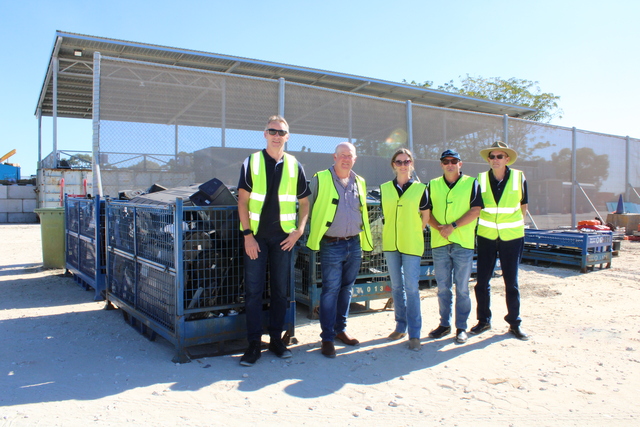There are significant leadership deficits within Australia’s regions, towns and communities. These contribute to our failure to promote the vibrancy and resilience of all parts of the nation.
So says Professor Andrew Beer, Dean, Research and Innovation, University of South Australia in a recent paper. He goes on to argue that the decision-makers in Australia – largely state and federal politicians – and the resources they command, are just too far away from regional centres.
Beer adds that his research with international collaborators concludes that Australian development agencies are reluctant, or don’t know how, to reach out and work with other government bodies.
They are also less inclined than those in Italy, Germany and Finland to build bridges between government departments or tiers of government. And they are starved of funding compared with those in most developed economies.
Beer contends that there is the added problem of a lack of clearly identifiable leaders with the authority to act.
“Compared with other countries in his study, it’s harder to find who in Australia takes ownership of responding to regional economic shocks. In Australia, mayors often play a role, but have few powers to bring about change,” he says.
Beer’s views are valid up to a point. However in my experience there is leadership at the local level, but it’s more understated than in Europe and the United States of America (USA).
To explain, local government and local agencies in Australia have limited ability to raise revenue, and they’re thus captive to federal and state government decision-making.
But local leaders often play a key backroom role.
Why? Because of the tyranny of distance and the relative lack of political machinery in Australia’s regions, federal and state governments do take the advice of regional leaders. I can vouch for this because I’ve seen ministerial minders hitting the phone to local leaders, whether they’re the local federal member, the mayor, council CEOs or senior federal officials in the field.
This informal process is rarely acknowledged, but it’s an important part of getting good policy outcomes.
The process is enhanced by our local leaders having a good fist on most issues – they have the education, awareness and objectivity that is not always seen in local leaders in other parts of the world.
Our local leaders also have good BS meters, and federal politicians ignore this at their peril.
An example is the Murray Darling Basin water licensing system, where local leaders’ views were largely ignored.
Similarly the NBN roll-out has been an opaque process without any real input from local leaders.
Reform wave underway
The Royal Commission into the financial services industry has clearly shown how federal authorities have dropped the ball on their regulatory functions over the last decade and more.
And the antics of Treasurer Morrison and Assistant Treasurer O’Dwyer in attempting to justify their inaction in calling the inquiry have been a master class in hypocrisy.
Meanwhile corporate wrongdoing is now being exposed among Ford, Telstra, Crown Casino, Microsoft etc.
The wonderful thing is that the Royal Commission is surely going to be the catalyst for change and reform in other fields.
The reform wave begun by the likes of Nick Xenophon is now gathering real momentum, and Derryn Hinch as well as marginalised backbenchers will have a field day.
The need for a national corruption commission is now clear.
Certain politicians and the corporate world are soon to be facing Judgement Day about their role in the insidious spread of poker machines. The federal government will be forced to tighten the tax regulation of multinational companies. The regulation of live cattle exports will increase. Everyone’s BS meters are on full volume!
Cockatoo pursuits
If you read last month’s column, you’ll note our strong interest in regional tourism, and it goes hand in hand with developing our regional food industries. To this end, we have since met with the Tourism & Travel Forum and Regional Tourism Australia about producing videos and feature articles about regional towns, and then doing exciting things with this material.
While the initial focus might be New South Wales (west of the Divide), the aim is to extend it to other states. If you’re a community with an interest, please contact us.
A second initiative is the linking of clusters between Australia/New Zealand, the European Community (EC) and the USA. The rationale is that despite a lot of promise, there’s been minimal progress here under the EC flagship cluster linking program.
To this end, we’ve had a phone hook-up with the EC program manager in Brussels, and follow-up talks are currently being arranged with federal agencies in Australia.
We want to initiate some pilot projects. Perhaps something in healthcare e.g. Port Macquarie has designs in this field – it would get a shot in the arm (excuse the pun) if it began sharing ideas, research and development, and investment with European clusters. Similarly Victor Harbor and Fremantle. And could our boat building businesses find global market opportunities by exposure to counterparts in Louisiana, San Diego, Toulouse, Hamburg etc. We have the contacts.
A third initiative is the development of a suite of programs to relocate business out of the major Australian capitals into regional centres on a win-win basis. Watch this space.
Rod Brown is a Canberra-based consultant and lobbyist specialising in industry/regional development, investment attraction and clusters, and accessing federal grants. He also runs the Cockatoo Network.
Phone: (02) 6231 7261 or 0412 922 559
Email: apdcockatoo@iprimus.com.au







